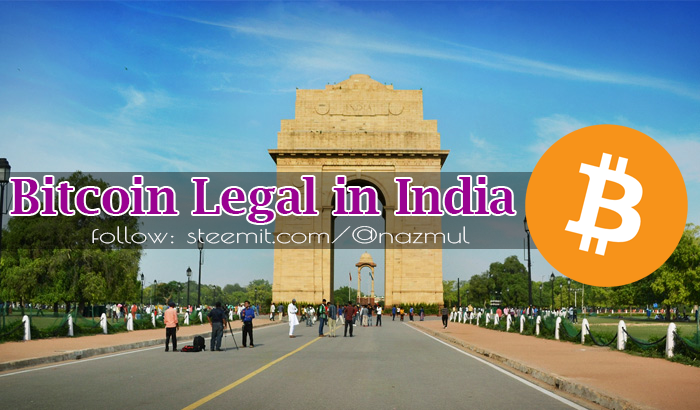
“Finally, something positive for the industry. Authorities are now taking this technology seriously. We have been trying to get their attention for years now. I am glad it's all happening at the right time. At Coinsecure, we are seeing a massive increase in the number of users and volumes. We are positive with what will happen in these coming three months.”
The legalization of Bitcoin in India
In spite of the negative attitude of certain politicians, the Indian government has come to a decision to regulate the market and provide an even playing field for Bitcoin exchanges that have allocated a significant amount of resources to standardize the market and industry.
Back in April, Mohit Kalra, CEO of Coinsecure, one of the largest Bitcoin exchanges in India, told Cointelegraph in an interview that the Indian government has finally started to take Bitcoin seriously and are considering the possibility of regulating the market.

As bitcoin soars to unprecedented heights in valuation, the Indian government, through its corporate regulator, is reportedly looking into companies getting into bitcoin transactions. In effect, the Ministry of Corporate Affairs (MCA) is not only looking into activity at bitcoin exchanges but all registered Indian companies dealing with bitcoin.
The move was first revealed by the Press Trust of India, a non-profit cooperative that sees over 500 Indian newspapers as its members to be the largest news agency in the country. The news has since made it to mainstream publications like the Economic Times, India’s largest financial news daily.
According to the report, the Ministry has instructed the Serious Fraud Investigation Office (SFIO), an investigate arm of the ministry, as well as the Registrar of Companies in India to ‘gather details’ about companies involved in bitcoin transactions.

Legal position in India
At present, there are no regulations governing virtual currencies like bitcoins in India. RBI, on December 24, 2013, issued a press release on virtual currencies like bitcoins, litecoins, bbqcoins, dogecoins stating that creation, trade and usage of virtual currencies as a medium for payment is not authorized by any central bank or monetary authority. Further, RBI has cautioned virtual currency traders and users to various security related risks such as hacking, malware attack etc. While RBI has not legalized bitcoins, it has declared them unauthorized as of now. RBI is currently examining the risks associated with the usage, holding and trading of virtual currencies under the extant legal and regulatory framework of India, including foreign exchange and payment systems laws and regulations

Risks
According to RBI, virtual currencies being in digital form are stored in digital/electronic media that are called electronic wallets (e-wallets). Therefore, they are prone to losses arising out of hacking, loss of password, compromise of access credentials, malware attack etc. Since they are not created by or traded through any authorized central registry or agency, the loss of an ewallet could result in the permanent loss of the virtual currencies held in them. Payments made through virtual currencies, such as bitcoins, takes place on a peer-to-peer basis without an authorized central agency regulating it. As such, there is no established framework for recourse to customer’s problems/disputes/charge backs, etc. Further, there is no underlying or backing of any asset for virtual currencies. The value of bitcoin seems to be a matter of speculation. Since virtual currencies are volatility in nature, users are exposed to potential losses on account of such volatility. It is reported that virtual currencies are being traded on exchange platforms set up in various jurisdictions whose legal status is also unclear. Hence, the traders of virtual currencies on such platforms are exposed to legal as well as financial risks. There have been several media reports of the usage of virtual currencies, including bitcoins, for illicit and illegal activities in several jurisdictions. The absence of information of counterparties in such peer-topeer anonymous/pseudonymous systems could subject the users to unintentional breaches of anti-money laundering and combating the financing of terrorism.
it's really happen within 5 day's !!!!!
Downvoting a post can decrease pending rewards and make it less visible. Common reasons:
Submit